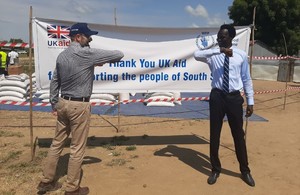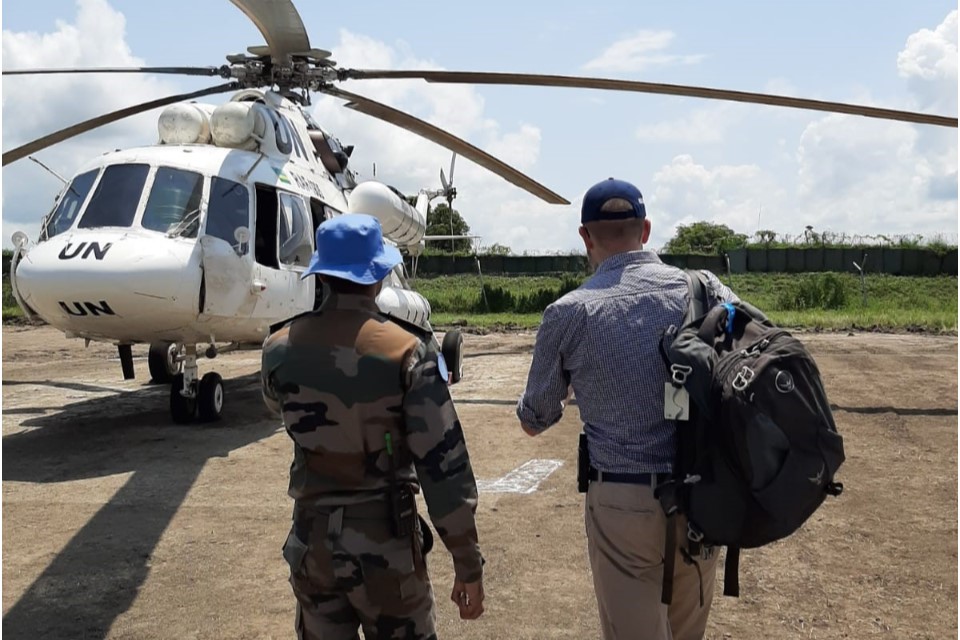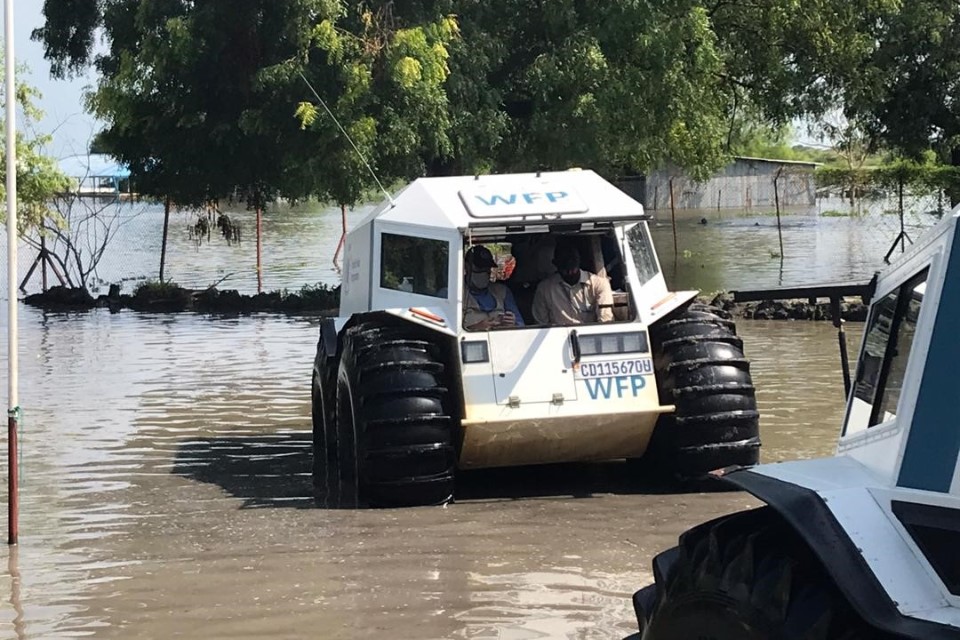Minister for Africa commits £8 million to mitigate famine in South Sudan
James Duddridge’s visit to South Sudan shows how the UK is helping protect the vulnerable, prevent famine across Africa and act as a force for good in the world.

The UK Minister for Africa, James Duddridge, travelled to South Sudan this week (20 to 22 October) where he committed £8 million to help the victims of flooding, reduce extreme hunger and help mitigate the ongoing risk of famine in the country. He was joined by the UK’s Envoy for Famine Prevention and Humanitarian Affairs, Nick Dyer.
This support will help the United Nations World Food Programme (WFP), International Organization for Migration (IOM), the United Nations Children’s Fund (UNICEF) and International Committee of the Red Cross (ICRC) to provide food assistance, nutrition support, shelter, and water, sanitation and hygiene support. This will help some of the most vulnerable in areas where nearly a million people have been affected by flooding and conflict, leaving them on the verge of humanitarian catastrophe.
The announcement was made during a visit to Pibor and Bor to see first-hand how UK aid is providing vital assistance to people facing flooding, conflict and severe hunger.

The minister also had the opportunity to speak to the President and Vice Presidents of South Sudan about the peace process, ensuring humanitarian access, and preventing famine.
James Duddridge, Minister for Africa said:
The UK stands with the people of South Sudan and is helping save lives.
We will provide vital food and support to thousands of people on the brink of hunger, following devastating flooding and conflict.
However, aid is not a long-term solution. The Government of South Sudan must commit more resources to ending conflict, bringing peace and stability and providing basic services including health and education to its people.
Matthew Hollingworth, WFP Country Director in South Sudan said:
Conflict, extreme flooding and increases in violence mean South Sudan is facing humanitarian catastrophe. Millions of households are skipping meals.
This new UK funding to tackle food insecurity will help alleviate some of this suffering.
However, other donors must urgently step up efforts, while the Government of South Sudan must continue to ensure access to those in need.

Background
- around 7.5 million people in South Sudan already need humanitarian assistance, according to the UN, with an estimated 6.5 million facing acute levels of hunger
- an estimated 800,000 people have been affected by flooding in areas in the country along the White Nile river since July, with over 360,000 people displaced
- sub-national violence in several states has also displaced many and prevented humanitarian workers from delivering food assistance
- the £8 million is being newly announced but it is not new money and forms part of the £119 million aid package announced by the UK’s Foreign Secretary Dominic Raab on 2 September 2020
-
the support will help WFP, IOM, UNICEF and ICRC provide food assistance, shelter, nutrition support and WaSH provision. The funding will be provided through the UK’s existing Humanitarian Assistance and Resilience programme (HARISS). The funding will reach thousands of South Sudanese people, including:
- provision of 67,000 consultations through rapid response mobile health clinics
- treatment for severe acute malnutrition for 30,000 children
- access to safe water sources for 7,000 people affected by flooding
- provision of 1,000 emergency WaSH response kits